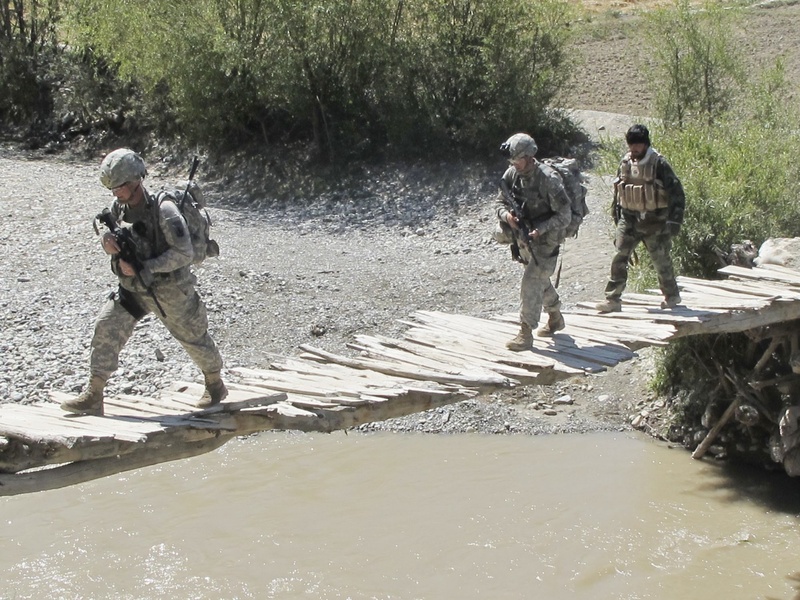PORTLAND – On May 1, President Obama signed an agreement between the United States and Afghanistan, outlining the transition plan that ends a long war and leads to the Afghans taking full responsibility for their country’s security by 2014.
With 10,000 American troops removed from Afghanistan last year, and another 23,000 to return home by the end of this summer, troop reductions are taking place at a steady pace.
But we need to be reminded that for many of these service men and women, the pain and suffering of war will not end when they step on American soil. As we have learned from the past, the trauma of war can lead to psychological problems long after veterans have re-entered civilian life.
Members of the military who serve in wars or violent conflicts are high-risk candidates for mental health issues, and research shows that combat veterans with post-traumatic stress disorder have high rates of suicide.
For the second straight year, the U.S. military has lost more troops in Iraq and Afghanistan to suicide than it has to combat. Back at home, almost 50 veterans try to kill themselves every day; sadly, 18 of them complete their attempts.
Between 2002 and 2010, 28 percent of returning service members from Iraq and Afghanistan were diagnosed with PTSD, depression or another type of mental illness, according to a fact sheet distributed by the National Alliance on Mental Illness.
The same fact sheet reports that only one-half of the troops experiencing symptoms of mental illness seek treatment, likely because they fear seeming weak to their peers and they fear the public stigma associated with mental illness.
Without treatment, many of them will fall victim to depression, unemployment, homelessness and, for the most unfortunate, suicide.
The evils of unemployment and homelessness still take a devastating toll. Unemployment among our veterans is more than double the national rate, at about 20 percent. On any given night, there are more than 100,000 homeless veterans somewhere in the country, and almost half of them live with a mental illness or substance abuse problem.
If we had special powers and could see the faces of these suffering men and women, in dark alleys and cold doorways and overcrowded shelters, we would see, in all its terrible reality and frightening repercussions, the faces of war. These veterans survived the physical dangers of combat only to suffer now from psychological wounds that threaten to destroy their lives just as cruelly as a bullet or a bomb would.
As the war in Afghanistan concludes, Community Counseling Center is committed to providing support for our returning service men and women. We employ mental health clinicians who are veterans themselves and familiar with war- zone experiences. They will continue to lead specialized combat readjustment groups for veterans.
As part of the Maine Military and Community Network, we will also continue to look at the issues Maine veterans face and ways to improve our statewide system of support.
The tragedy of wars’ aftermath is hardly news. NAMI notes that “extreme psychological responses to combat are found as far back as Homer’s writing in 800 B.C., writings from the American Civil War, and from every combat situation that followed.”
But even after thousands of years, we still seem to forget that when the war is officially over, the pain and suffering continue for many warriors, even years after they’ve shed their uniforms.
Our military men and women risk their lives in service to our country. We owe them the best mental and physical health care possible, both as soldiers on the field of battle and, when they return home, as veterans. It’s not just the least we can do for them, it’s the right thing to do for them.
David Smith chairs the board of directors of the Community Counseling Center in Portland.
Send questions/comments to the editors.



Success. Please wait for the page to reload. If the page does not reload within 5 seconds, please refresh the page.
Enter your email and password to access comments.
Hi, to comment on stories you must . This profile is in addition to your subscription and website login.
Already have a commenting profile? .
Invalid username/password.
Please check your email to confirm and complete your registration.
Only subscribers are eligible to post comments. Please subscribe or login first for digital access. Here’s why.
Use the form below to reset your password. When you've submitted your account email, we will send an email with a reset code.